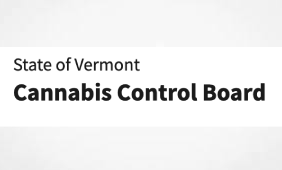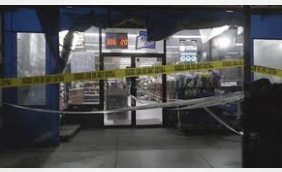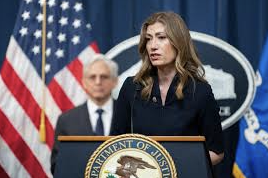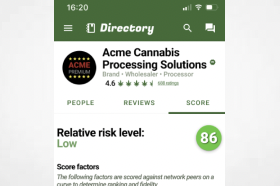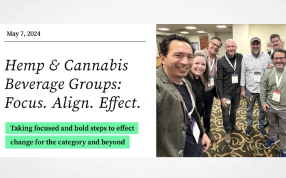Source: The Appeal
It’s 4/20, arguably the most notorious unofficial holiday for consumers in America after Black Friday. Denver, Colorado, hosts the Mile High 420 Festival. Revelers in San Francisco flock to Hippie Hill. Over here at The Appeal, we’re celebrating by tackling some popular myths about marijuana and the criminal legal system. Because this is apparently how nerds have fun.
Myth #1: Outlandish sentences for weed possession are driving the mass incarceration crisis.
Fact: Not exactly. There is a popular idea that habitual offender laws have been used to push scores of nonviolent drug offenders—disproportionately Black people—into unduly long prison sentences all because they dared to smoke weed. One reason this idea is so popular is that it’s convenient: If most people were in prison for marijuana possession, then decarceration becomes a much more simple and sympathetic argument. We’re talking about weed, after all.
While habitual offender laws have certainly driven many people into long prison sentences, the majority of those people are not there for marijuana-related charges. In California, for example, 80 percent of people in state prison are there because of a conviction for a serious or violent crime. People with convictions for violent crimes also make up the majority of state prison populations in Texas, Florida, Louisiana, and elsewhere. (Though, it is important to note that in some instances “violent crime” can include acts without physical harm, like purse snatching or burglary.) And at the federal level, convictions for marijuana possession alone remain nominal, though not zero.
Myth #2: No one really gets arrested for weed anymore.
Fact: The tides are certainly changing when it comes to marijuana: More than half of Americans believe weed should be legalized, and recreational marijuana is now legal in 18 states and Washington, D.C. It would be easy to think that law enforcement has chosen to deprioritize weed when there are bigger fish to fry. But marijuana still plays an outsized role when it comes to arrests.
More people are arrested for marijuana than any other drug—and nearly 90 percent of those arrests are for possession alone, according to a 2020 report by the ACLU. Using data from 2018, the authors estimated that approximately 39 out of every 100 drug arrests that year were for mere possession of marijuana. This is an improvement from a decade earlier when the national arrest rate for marijuana possession was even higher, but the ACLU found that “racial disparities in those arrests have not improved, and in some jurisdictions, they have worsened.”
This suggests that weed remains a primary reason that people come into contact with law enforcement—and this is especially true for people of color.
Myth #3: Decriminalizing marijuana will fix all of these problems.
Fact: Decriminalizing weed is an important step in the fight to curb mass incarceration, but broad decriminalization wouldn’t have as much of an impact on arrests as legalization.
One reason is that “decriminalization” is not a uniform policy. In some locales, like New York City, possession of up to three ounces may no longer be a crime, but public use still is unless in mandated areas.
Also, the decriminalization of possession in public typically caps at a nominal amount of weed—like one to three ounces depending on the jurisdiction. If someone is found with any amount larger than that, they can still be arrested and, in some cases, charged with “possession with intent to distribute,” which can bring heftier prison sentences.
Certain jurisdictions now treat possession of smaller amounts of weed as a misdemeanor that carries a fine. While folks may not technically get arrested and jailed for this, they can still end up with a marijuana charge on their record, which could impact their ability to get employed. (Though some places, like New Orleans, are working to remove simple marijuana charges from people’s records as part of their decriminalization efforts.)
In many places, fines are used to fund public services, potentially incentivizing law enforcement to issue “tickets” for misdemeanors like possession of weed. This might seem preferable to jail time—and it is—but it’s still problematic. Study upon study shows that legal system fines and fees have a disproportionate impact on marginalized communities.
Decriminalization often amounts to a half-measure. By comparison, in places that have legalized weed, marijuana arrests have fallen by tens of thousands overall.
It’s important to remember that marijuana is still considered a Schedule I drug under federal law, alongside substances like heroin, LSD, and MDMA, commonly known as ecstasy. During the Trump administration, Attorney General Jeff Sessions “rescinded the Obama-era guidance that deprioritized federal enforcement of marijuana possession in states where its use had been allowed,” meaning that even in places where marijuana had been legalized, people could still be at risk of being prosecuted under federal law. Reforming laws at the state and local levels is important, but certain hurdles will remain until marijuana is legalized at the federal level.
Myth #4: Legalizing weed will end racial disparities in the policing of drugs.
Fact: Although white and Black young adults use marijuana at approximately the same rate, ACLU data found that a Black person is 3.64 times more likely to be arrested on charges of marijuana possession than a white person.
The racial biases of our criminal legal system can’t get a lot more explicit than that. And while fully legalizing weed may seem like an easy way to address a key inequity that contributes to the alarming incarceration rate among young Black people, research by the ACLU suggests this may not be enough. Their eight-year study on legal weed jurisdictions found that a significant number of people are still getting arrested for marijuana—and Black people still make up a disproportionate number of those arrested.
The ACLU’s study of data from Massachusetts in 2018, the first year of licensed recreational marijuana sales, found Black people were still four times more likely to be arrested than white people for marijuana possession—an increase from 2010. Of the 312 people arrested for marijuana possession that year, nearly 30 percent were Black, even though Black residents make up only 9 percent of the state’s population.
So, even if fewer total people are being arrested for weed, that doesn’t mean these laws will necessarily do much to address the racial disparities in marijuana arrests.
In our fight for racial justice in the criminal legal system, it’s important to be honest about the role drug laws play in bringing communities of color into contact with law enforcement. The political decision to continue punishing common and often relatively risk-free drug use is functionally a decision to give police more excuses to harass, arrest, incarcerate, and extract money from people of color. This will be the case so long as policing exists in its current form. Tackling the criminalization of weed is one way to address the racist outcomes that define our criminal legal system—but this alone will do little to change the system itself.

